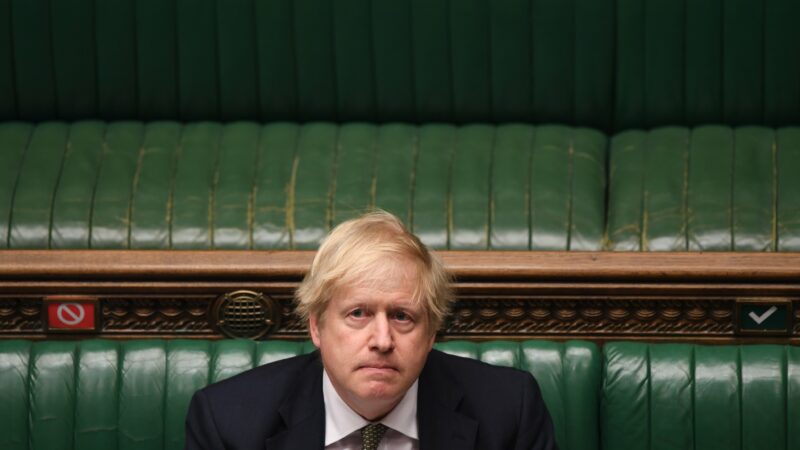
The row sparked by the Owen Paterson £112,000-lobbying scandal has developed into an embarrassing mess for the Prime Minister. A little under two weeks after the government whipped Conservative MPs to back an amendment rejecting a 30-day suspension of Paterson (who has since resigned), the Commons last night considered a motion to rescind that same amendment. Ministers pushed the motion until the end of the day and it only needed one MP to object for it to fail. Tory Christopher Chope – the same man who blocked legislation to make upskirting a specific offence, attempts to toughen laws on female genital mutilation and a debate on the Hillsborough disaster – did so. Boris Johnson must now endure an hour-long debate on the issue today.
Polls show a downward turn in support for the Conservatives since the Paterson row kicked off. Savanta Comres, Opinium and YouGov have shown over the past few days, respectively, a six-point lead for Labour, a one-point lead and the opposition party now being tied with the Conservatives. Johnson has recognised the trend – having been challenged repeatedly at multiple media appearances over the past couple of weeks, he finally conceded over the weekend: “I think things could certainly have been handled better, let me put it that way, by me.”
Labour is keeping up the pressure. Keir Starmer has confirmed that his party will force a vote this week calling for MPs to be banned from holding paid directorships or consultancies alongside their elected role. The text of the motion has not yet been published, but it is understood that Labour believes it can be written in such a way to be binding. Opposition day motions cannot directly bind the government (which is why Boris Johnson has simply taken to ignoring the vast majority of them). But a motion calling for changes to the Commons to do something, rather than the government, can be binding on parliament.
Opposition day debates provide a rare opportunity (there are just 20 in each parliamentary session) for opposition parties to set the agenda, but most go by without much fanfare or consequence. There are exceptions – votes on free school meals, for example, helped spark a public outcry and spur a government U-turn during the pandemic. For most, however, Johnson has simply started ordering his MPs to abstain – a luxury he can afford where the motion has no binding effect. But a motion with legal effect would mean Johnson has to make a choice.
If he orders his MPs to vote against, he will be defending Tory sleaze at a time when 60% of people think the Conservatives give the impression of being “very sleazy”. He will also be on the wrong side of public opinion on MPs’ second jobs, 68% of whom think they should be banned. Johnson could instruct MPs to abstain or give them a free vote. This means he avoids the public outrage but the motion would likely pass, which would have internal party ramifications. 50 Tory MPs have earned more than £1.7m in consultancy fees since the beginning of 2021 alone. Other MPs have jobs or take paid engagements as well, but this is overwhelmingly a Conservative problem. The register of interests shows that 90 out of 360 Conservative MPs have extra jobs compared with just three from the Labour Party.
The Chope-shaped fiasco last night was an embarrassing moment for the government in itself. The motion on Wednesday will ensure that the corruption row remains at the forefront for at least another few days. And if it does have legal effect, Johnson cannot just ignore the vote. He can either fly in the face of public opinion or risk upsetting the Conservative MPs keen to hang on to their extra income.




More from LabourList
‘Labour won’t stop the far right by changing leaders — only by proving what the left can deliver’
‘Cutting Welsh university funding would be economic vandalism, not reform’
Sadiq Khan signals he will stand for a fourth term as London Mayor